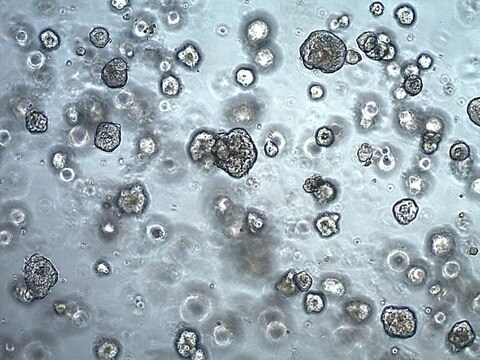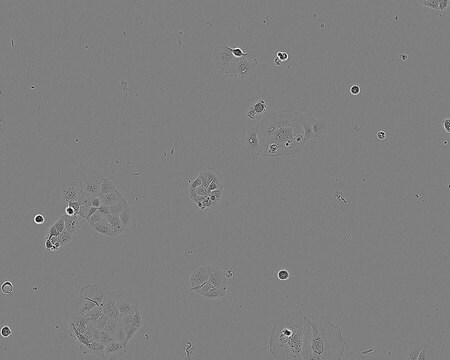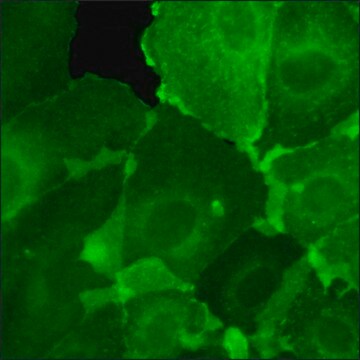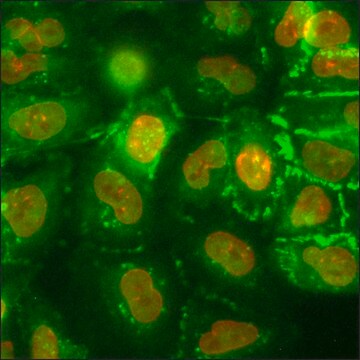CLLS1132
DLD1 CELLS AKT1 -/-
human male colon (Source Disease: Colorectal adenocarcinoma)
About This Item
Produits recommandés
Description générale
This product corresponds to ATCC Cat. No. CCL-221.
Application
Rapidly thaw vial by gentle agitation in 37°C water bath (~2 minutes), keeping vial cap out of the water. Decontaminate with 70% ethanol, add 9 mL culture media and centrifuge 125 x g (5-7 minutes). Resuspend in complete culture media and incubate at 37°C in a 5% CO2 atmosphere.
Subculture ratio: approx. 1:3 to 1:10.
The base medium for this cell line is RPMI, Cat. No. R5886. To make the complete growth medium, add the following components to the base medium: fetal bovine serum, Cat. No. F4135, to a final concentration (v/v) of 10%, L-glutamine, Cat. No. G7513, to a final concentration of 2 mM and sodium pyruvate, Cat. No. S8636, to a final concentration of 1 mM.
Cell freezing medium-DMSO 1X, Cat. No. C6164.
Actions biochimiques/physiologiques
Caractéristiques et avantages
Zinc finger nuclease (ZFN) knock out on chromosome 14q32.3
Qualité
Clause de non-responsabilité
Composants de kit seuls
- DLD1 CELLS AKT1 -/-
Faites votre choix parmi les versions les plus récentes :
Certificats d'analyse (COA)
It looks like we've run into a problem, but you can still download Certificates of Analysis from our Documents section.
Si vous avez besoin d'assistance, veuillez contacter Service Clients
Déjà en possession de ce produit ?
Retrouvez la documentation relative aux produits que vous avez récemment achetés dans la Bibliothèque de documents.
Contenu apparenté
We have applied our revolutionary CompoZr Zinc Finger Nuclease technology to create an unparalleled range of genetically modified mammalian cell lines for use in areas, such as target validation, drug discovery and drug development.
Notre équipe de scientifiques dispose d'une expérience dans tous les secteurs de la recherche, notamment en sciences de la vie, science des matériaux, synthèse chimique, chromatographie, analyse et dans de nombreux autres domaines..
Contacter notre Service technique




